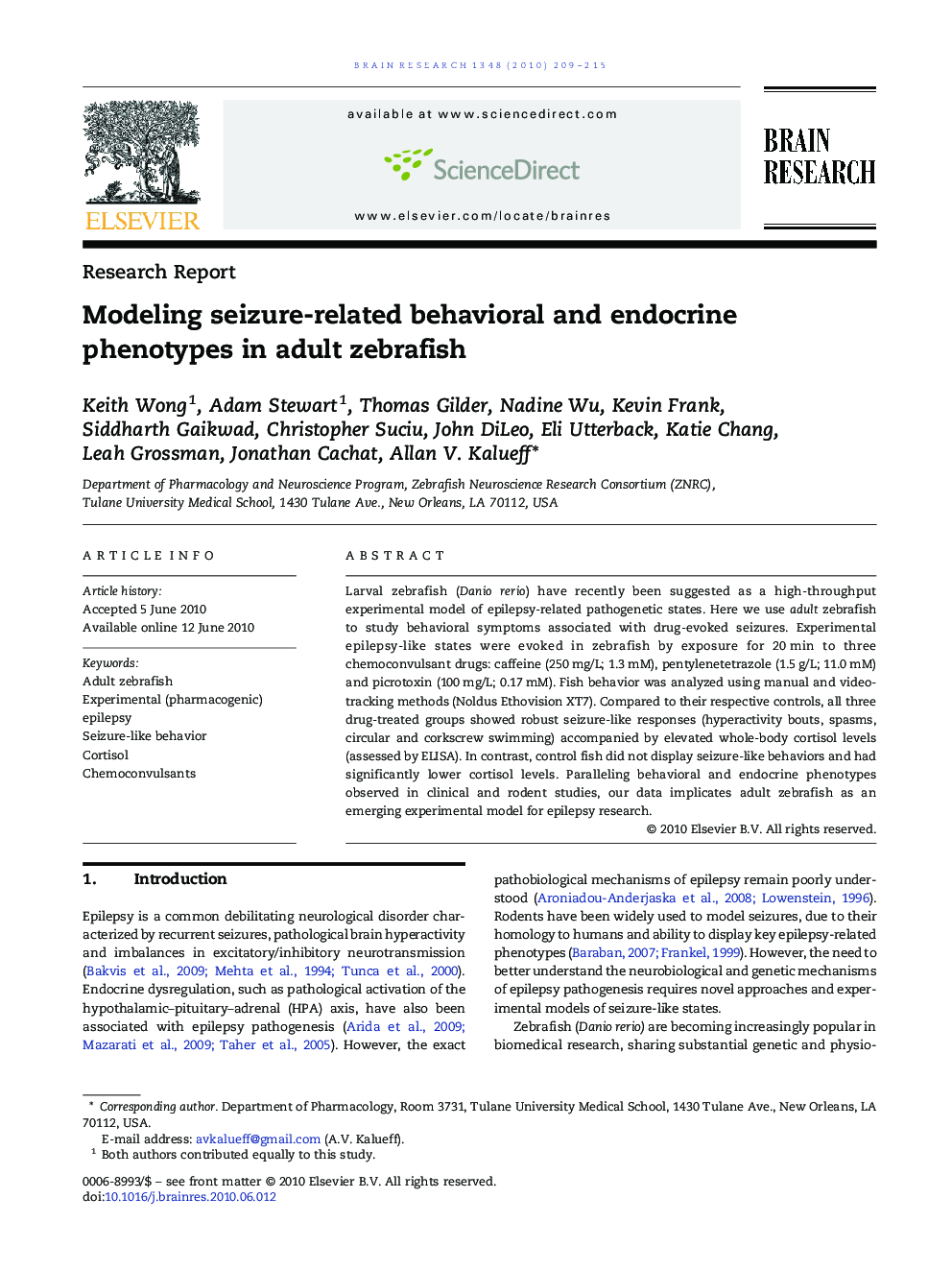| Article ID | Journal | Published Year | Pages | File Type |
|---|---|---|---|---|
| 4326729 | Brain Research | 2010 | 7 Pages |
Abstract
Larval zebrafish (Danio rerio) have recently been suggested as a high-throughput experimental model of epilepsy-related pathogenetic states. Here we use adult zebrafish to study behavioral symptoms associated with drug-evoked seizures. Experimental epilepsy-like states were evoked in zebrafish by exposure for 20Â min to three chemoconvulsant drugs: caffeine (250Â mg/L; 1.3Â mM), pentylenetetrazole (1.5Â g/L; 11.0Â mM) and picrotoxin (100Â mg/L; 0.17Â mM). Fish behavior was analyzed using manual and video-tracking methods (Noldus Ethovision XT7). Compared to their respective controls, all three drug-treated groups showed robust seizure-like responses (hyperactivity bouts, spasms, circular and corkscrew swimming) accompanied by elevated whole-body cortisol levels (assessed by ELISA). In contrast, control fish did not display seizure-like behaviors and had significantly lower cortisol levels. Paralleling behavioral and endocrine phenotypes observed in clinical and rodent studies, our data implicates adult zebrafish as an emerging experimental model for epilepsy research.
Keywords
Related Topics
Life Sciences
Neuroscience
Neuroscience (General)
Authors
Keith Wong, Adam Stewart, Thomas Gilder, Nadine Wu, Kevin Frank, Siddharth Gaikwad, Christopher Suciu, John DiLeo, Eli Utterback, Katie Chang, Leah Grossman, Jonathan Cachat, Allan V. Kalueff,
